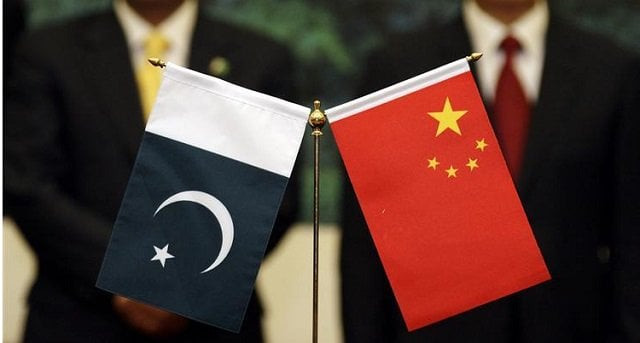China deposits $2.2 billion in SBP reserves
Much-needed inflows will help Islamabad make international payments

PHOTO: REUTERS
With this, Pakistan has so far received a total of $9.1 billion in financial assistance packages from friendly countries during the current fiscal year (2019) to date, including $4.2 billion from China, $3 billion from Saudi Arabia and $2 billion from United Arab Emirates (UAE).
The central bank tweeted, “State Bank of Pakistan has received RMB 15 billion value equivalent to $2.2 billion as proceeds of the loan obtained by the government of Pakistan from China.”
The SBP reserves stood at $8.84 billion as on March 15, 2019, according to the central bank’s latest weekly report.
Following the deposit, foreign exchange reserves held by the SBP have hit a double digit mark of $10.67 billion, finance ministry spokesman Khaqan Najeeb tweeted. This surge in double digits comes after a gap of almost one year.
“The net foreign exchange reserves held by the commercial banks stand at $6.91 billion. Implementation of a successful strategy has ensured total foreign exchange reserves of the country rising to a comfortable level of $17.58 billion,” the spokesperson added.
The comparatively higher imports than exports and debt repayments did not allow the reserves to stay stable, as the government was partially financing such international payments using the reserves. This was despite Pakistan's overseas workers sending notably higher remittances during the first eight months (July-February) of the current fiscal year.
China to lend Pakistan $2.1b in commercial loan next week
Apart from this, Riyadh has also enabled a $3 billion petroleum oil supply line on deferred payment for Pakistan as well.
Finance Minister Asad Umar had estimated financing gap of around $12 billion for the ongoing fiscal year 2019 and another $7-8 billion for the fiscal year 2020.
The friendly countries have extended the soft loan at an interest rate ranging 2.5-5% to shore up SBP's foreign currency reserves and averting payment default.
Earlier, the UAE had announced a $6-billion package for Pakistan in December 2018 including $3 billion in cash deposit and a credit line of another $3 billion for the supply of petroleum oil on deferred payment. However, Pakistan has not been able to secure the $3.2-billion oil on deferred payments facility from the UAE.
Earlier, Finance Minister Asad Umar confirmed to The Express Tribune, “Most probably, the UAE oil facility agreement will not materialise.”
Foreign loan disbursements slow down to $2.8b
The UAE has provided the soft loan at an interest rate of 3%, he disclosed the other day. Abu Dhabi released the first tranche of $1 billion and in January and second tranche of another $1 billion in March.
“We will let you know as and when the third and last tranche arrives,” said the SBP spokesman.
“Deposits are coming at a very critical time as Islamabad is set to make a large external debt payment next month - April, while its reserves remain under pressure,” Arif Habib Limited Head of Research Samiullah Tariq said recently.
“Pakistan is scheduled to pay off $1 billion for a maturing Eurobond in April…this will be in addition to other external debt payments during the month,” he said.
The increased international payment pressure had led to depletion of Pakistan’s foreign currency reserves to almost five-year low at $6.63 billion as on January 18, 2019.
In December 2018, the UAE offered exactly the same bailout package as that announced by Saudi Arabia in October 2018 to shore up Islamabad’s foreign currency reserves.
Riyadh has already deposited $3 billion in cash in three equal monthly tranches by January 2019. Besides, the two countries have also decided modalities for oil supply on deferred payments from March 2019.



















COMMENTS
Comments are moderated and generally will be posted if they are on-topic and not abusive.
For more information, please see our Comments FAQ